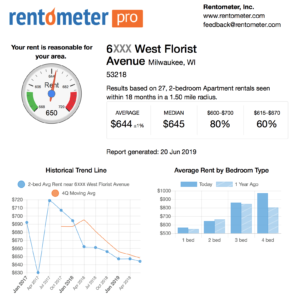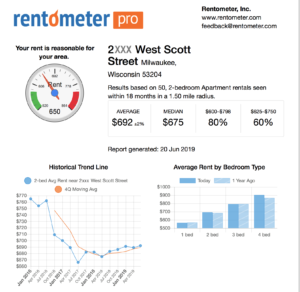Follow up to the Milwaukee County Proposal on making Rent Assist a protected housing class. with a hearing is Monday March 12th, 9:00 AM at the Milwaukee County Courthouse building, Room 201B, 901 North 9th Street, Milwaukee, WI 53233
My company accepts, and likes the Rent Assist program. We also have not found the inspections particularly cumbersome. In our market we see Rent Assist as a benefit to both owner and tenant.
Yet, I oppose the bill.
- Mainly because it attempts to hide the fact that the true reason that people do not get Rent Assist is that Milwaukee County does not provide as many vouchers as there are folks eligible to receive vouchers.If Ms Dimitrijevic wanted to help tenants in need of Rent Assist she would look at her own branch of government and say ’We need to increase the available vouchers.’ If that was her proposal the Association and I would fully support her, as would most tenant advocates.Instead she tries scapegoating owners, making it look like discrimination against voucher holders is the problem.
Ask Ms Dimitrijevic if there are more applicants than vouchers and how many months or years the Rent Assist waiting list is.The other reasons I oppose this are:
- Rent Assist does not allow for month to month occupancies. Owners are more likely to take a chance on a questionable applicant if they can use a month to month and terminate tenancies that are not working as expected. If you are a tenant, I’m sure you do not want to live in an apartment next door to a disruptive neighbor and when you complain the owner tells you that this person that is making your apartment less enjoyable has to stay for 11 more months due to a year lease.
- Another issue is that per the RA contract an owner must serve both the tenant and the RA agency with notices of default, such as non payment. This creates an additional opportunity for an eviction for good cause to have problems.
- Finally, an owner may have to wait for the first payment. While not a concern to our company, this is a big problem for mom and pop owners who are often under capitalized.
What the bill actually does.
Supervisor Marina Dimitrijevic, the bill’s author, states on FaceBook: “This change to the ordinance does not mandate acceptance of certain sources of income rather it makes it illegal to discriminate against tenants based on source of income.” The bill is worded consistent with her statement.
Currently.
Prospective tenant: ‘Hi, I have a Rent Assist voucher. Will you accept my app?‘
Landlord: ’Sorry. We do not do Rent Assist.’
Prospective tenant: ‘Okay, There are thousands of other owners that love the program and I am one of a few tenants who are eligible.’ and under her breath says ‘What a donkey’
Result: The tenant does not waste time and possibly money apply for a unit they will not receive. Everyone understands upfront. And the owner who does not accept the Rent Assist voucher holder loses a great tenant, and the accompanying revenue, that we end up with. 😉
Image what a terrible experience this will be for the tenant under the new law if they apply with an owner that will not accept Rent Assist vouchers.
Prospective tenant: ‘Hi, I have a Rent Assist voucher. Will you accept my app?‘
Landlord: ‘Of course you can apply. I follow all laws.’
Prospective tenant: ‘Was my app approved?‘
Landlord: ‘Why yes. You met all my requirements and seem like a wonderful tenant!’
Prospective tenant: ‘Great! Here is the Rent Assist app you must sign.’
Landlord: ‘Sorry. I do not accept Rent Assist, but I did accept you.’ and legally the owner could say ‘By the way, because you are accepted I expect you to take the place or forfeit the earnest money’
Prospective tenant: ‘WTF! This is an outrage.
Landlord: ‘Sorry. This is the unintended consequences of Ms, Dimitrijevic’s law.’
Result: Confusion, a terrible experience and possible negative financial consequences.
Instead of this bill, a true tenant advocate would require that owners disclose in advance of taking an app if they will accept Rent Assist or other programs. That is what is fair and equitable, not some non discrimination code that will harm and confuse tenants.




